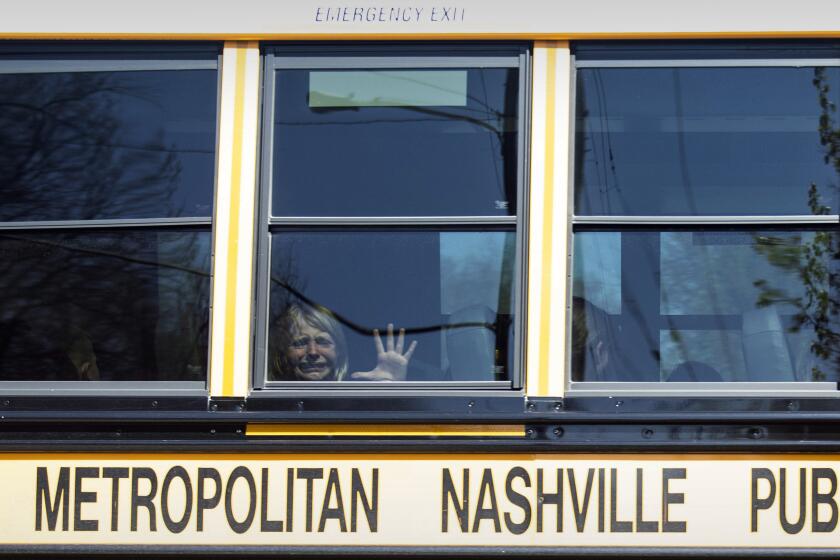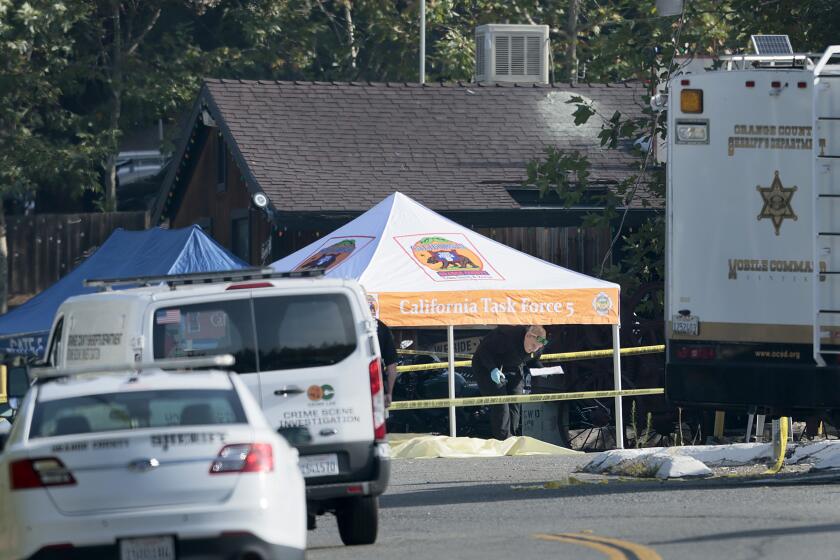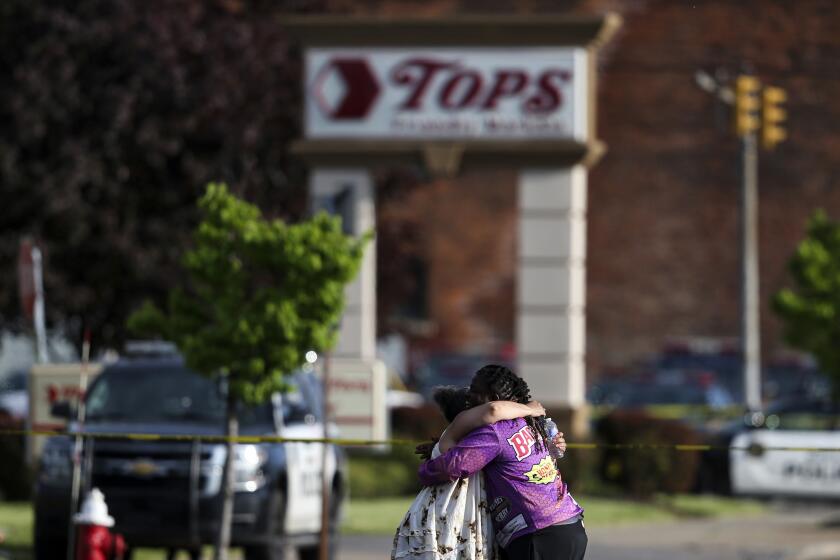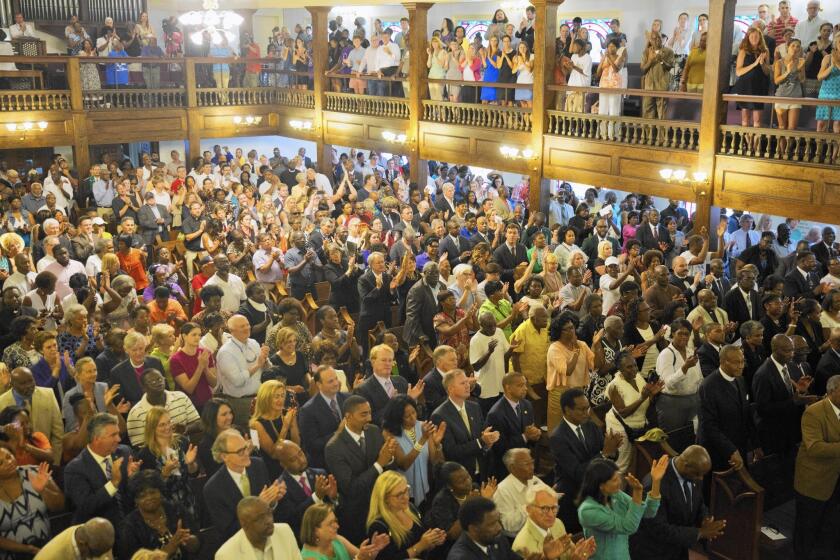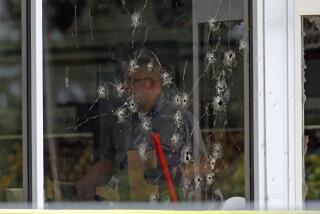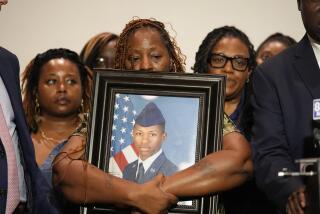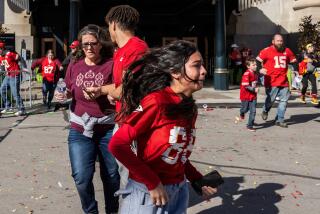White gunman kills 3 Black people at a Florida store in a hate crime, officials say
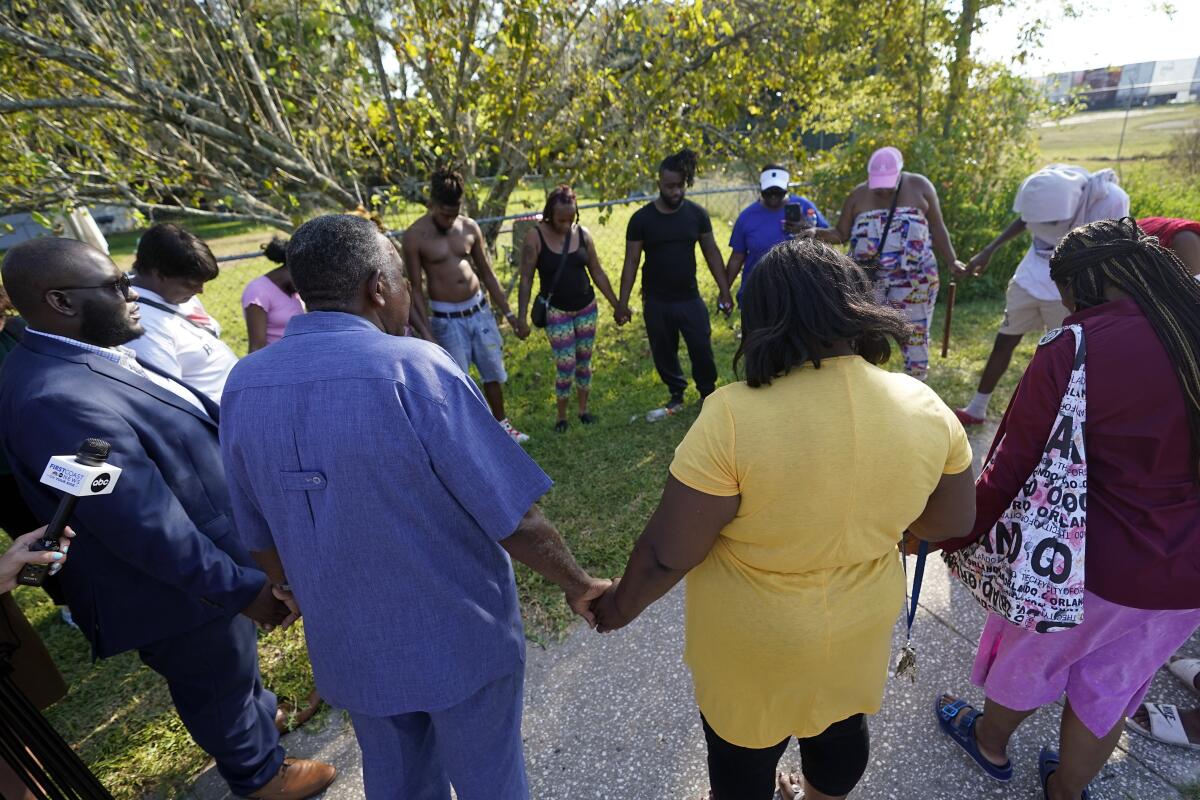
- Share via
JACKSONVILLE, Fla. — A white man fatally shot three Black people inside a Jacksonville, Fla., Dollar General store on Saturday in a predominantly African American neighborhood, using a gun painted with a swastika, officials said. The shooter, who had posted racist writings, then killed himself.
Jacksonville Sheriff T.K. Waters said at a news conference that the attack that left two men and one woman dead was definitely “racially motivated.”
“He hated Black people,” Waters said after reviewing the man’s writings, which were sent to federal law enforcement officials and at least one media outlet shortly before the attack. He added that the gunman acted alone and “there is absolutely no evidence the shooter is part of any larger group.”
Waters said the shooter, who was in his 20s, was armed with a Glock handgun and an AR-15 semiautomatic rifle, with at least one painted with a swastika. The man was wearing a bullet-resistant vest and a mask.
The sheriff said the shooter had once been involved in a 2016 domestic violence incident and was once involuntarily committed to a mental hospital for examination. He did not provide details on those incidents.
Officials didn’t immediately release the victims’ names nor that of the shooter.
The first half of 2023 saw the deadliest six months of mass killings — all but one of them shootings — recorded in the U.S. since at least 2006.
The sheriff said the gunman had left behind in his writings evidence that leads investigators to believe he committed the attack because it was the fifth anniversary of another shooting in Jacksonville, which occurred during a video game tournament in which a gunman killed two people before fatally shooting himself.
Saturday’s shooting happened just before 2 p.m. about three-quarters of a mile from Edward Waters University, a small historically Black university.
In a statement, the university said that shortly before the shooting, one of its security officers saw the man near the school’s library and asked him to identify himself. When he refused, he was asked to leave. The man returned to his car.
Sheriff Waters said the gunman was spotted putting on a tactical vest and mask before leaving. He said it is unknown if the man had originally planned to attack the school.
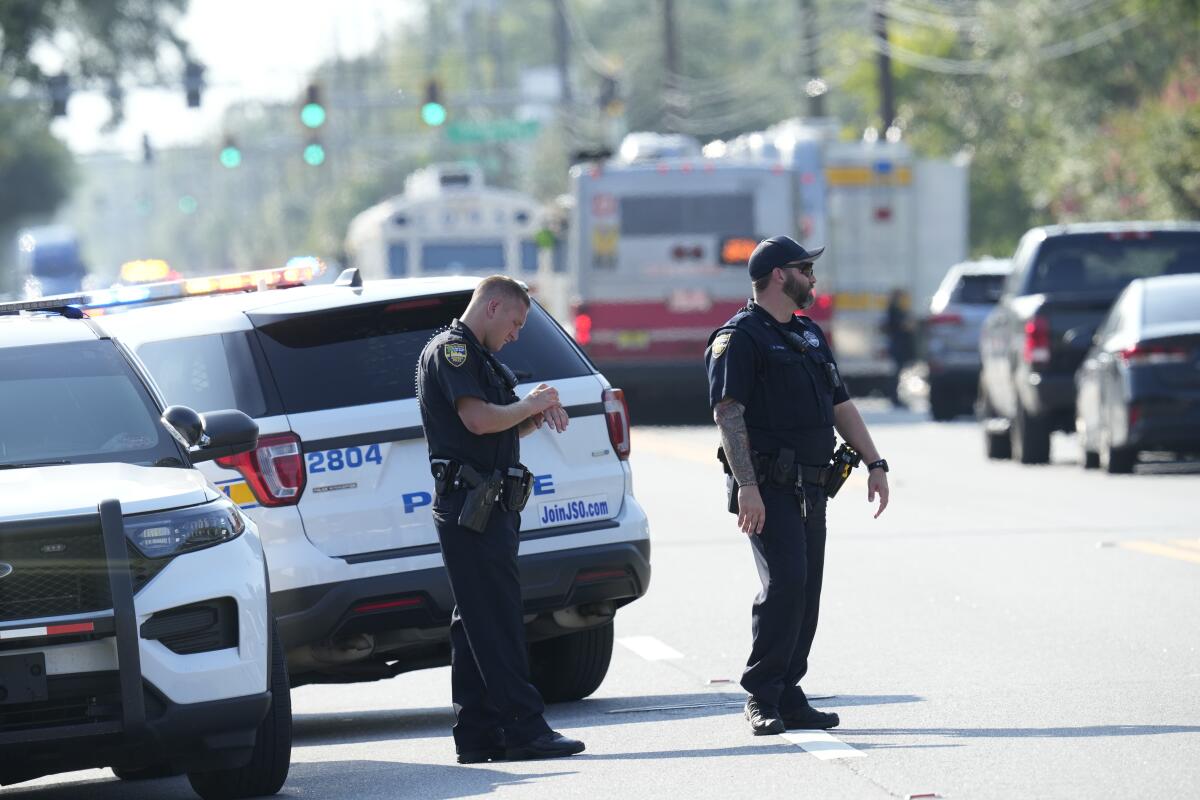
“I can’t tell you what his mind-set was while he was there, but he did go there,” the sheriff said.
Edward Waters students were locked down in their dorms for several hours after the shooting. No students or faculty are believed involved, the school said.
The shooter had driven to Jacksonville from neighboring Clay County, where he lived with his parents, the sheriff said. Their house was being searched late Saturday.
Shortly before the attack, the shooter texted his father, telling him to check his computer. The father found the writings and the family notified 911, but the shooting had already begun, Waters said.
“This is a dark day in Jacksonville’s history. There is no place for hate in this community,” Waters said. “I am sickened by this cowardly shooter’s personal ideology.”
Mayor Donna Deegan said she is “heartbroken.”
“This is a community that has suffered again and again. So many times this is where we end up,” Deegan said. “This is something that should not and must not continue to happen in our community.”
Gov. Ron DeSantis, after speaking by phone with the sheriff, called the shooter a “scumbag” and a coward. DeSantis was in Iowa campaigning for the Republican presidential nomination.
John Snowling came to Cook’s Corner in the middle of the family-friendly $8 spaghetti night. The former police officer shot his wife, then turned on other bar patrons.
President Biden and Atty. Gen. Merrick Garland were briefed on the shooting, officials said.
Dollar General’s corporate office said in a statement, “We are heartbroken by the senseless act of violence that occurred at our Kings Road store in Jacksonville, Florida today. At this time, supporting our Jacksonville employees and the DG family impacted by this tragedy is a top priority as we work closely with law enforcement.”
Virginia Bradford lives in the neighborhood of modest brick and cinderblock houses near the store. She frequently shops at the Dollar General, and said she meant to go there Saturday for detergent and bleach, but got sidetracked by other plans.
“That’s my store,” Bradford told reporters, looking past patrol cars with flashing lights blocking the street to the store a block away. “I know everyone in the store. It’s sad.”
Unsettled by the racist killings, Bradford, who is Black, said she doubts she’ll ever go back.
“I won’t even send my kids up there anymore,” she said. “My nerves are bad.”
Penny Jones told the Associated Press that she worked at the store until a few months ago. She lives a few blocks away.
“I’m just waiting to hear about my co-workers that I used to work with,” Jones said. “I don’t know if it’s safe to move about the neighborhood.” She added that she was “feeling awkward, scared.”
Buffalo, N.Y., pauses to mark one year since a white supremacist gunman killed 10 Black people and wounded three at a supermarket.
“I don’t want to leave my house. I’m thinking, do I want to go back to the store? Is this going to start happening more frequently? I don’t know what the cause of it is. I’m confused. It’s a lot of different feelings going on right now,” she said Saturday afternoon.
The deadly shooting took place within hours of the conclusion of a commemoration of the 60th anniversary of the March on Washington in the nation’s capital, where organizers drew attention to the growing threat of hate-motivated violence against people of color.
He arrived at the Calhoun Street church at 8:17 p.m., a pale, gaunt young man with a fishbowl haircut and putty-like features.
The attack will undoubtedly evoke fears of past shootings targeting Black Americans, including the one at a Buffalo, N.Y., supermarket in 2022, and another at a historic African Methodist Episcopal church in Charleston, S.C., in 2015.
The Buffalo supermarket shooting, in particular, stands apart as one of the deadliest targeted attacks on Black people by a white lone gunman in U.S. history. Ten people were killed by the gunman, who has been sentenced to life in prison without the possibility of parole.
The shooting happened one day before the 63rd anniversary of one of Jacksonville’s most notorious racist incidents, “Ax Handle Saturday.”
A group of Black protesters were conducting a peaceful sit-in at a city park to protest the Jim Crow laws that kept them out of white-owned stores and restaurants. They were attacked by 200 members of the Ku Klux Klan, who hit them with bats and ax handles as police stood by.
Only when members of a Black street gang arrived to fight the Klansmen did the police intercede. Only Black people were arrested.
More to Read
Sign up for Essential California
The most important California stories and recommendations in your inbox every morning.
You may occasionally receive promotional content from the Los Angeles Times.
